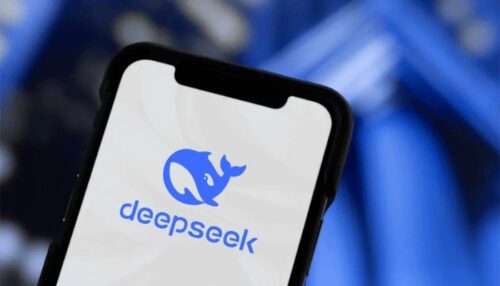The Chinese artificial intelligence platform, DeepSeek, may soon face a ban in the United States following the introduction of a new bill aimed at restricting the use of Chinese-developed technologies. This legislation, spearheaded by Senator Josh Hawley, seeks to impose strict penalties—including hefty fines and prison sentences—on individuals and organizations found using or promoting AI tools linked to China.
What the Proposed Law Entails
The bill, recently filed in the U.S. Senate, specifically targets technologies developed within the People’s Republic of China. It aims to block the importation, distribution, and utilization of Chinese-made “technology or intellectual property.” While DeepSeek isn’t directly named, the legislation comes shortly after the AI platform surged in popularity, overtaking several U.S. competitors and triggering a sharp decline in American tech stocks.
If passed, violators of the proposed law could face severe consequences:
- Individuals may be fined up to $1 million or face up to 20 years in prison.
- Corporations could incur penalties as high as $100 million for non-compliance.
Why DeepSeek Is Under Scrutiny

DeepSeek’s rapid rise has raised red flags among U.S. lawmakers and security experts, particularly due to concerns over data privacy, security vulnerabilities, and potential foreign influence. The app’s reluctance—or outright refusal—to engage with politically sensitive topics related to the Chinese Communist Party (CCP) has further fueled suspicions about its operations and underlying algorithms.
President Donald Trump referred to DeepSeek’s growing influence as a “wake-up call” for the American tech industry, urging U.S. companies to reevaluate their competitive strategies and security measures. Meanwhile, the White House has initiated an investigation into the AI tool’s possible implications for national security.
Government Agencies and States Respond
Several U.S. government bodies have already taken preemptive action:
- The U.S. Navy has banned its personnel from using DeepSeek for both official and personal purposes.
- NASA has prohibited the use of DeepSeek on all government-issued devices and networks.
- Texas became the first state to enact a formal ban on the app across government-owned devices.
Governor Greg Abbott of Texas voiced strong opposition, stating:
“Texas will not allow the Chinese Communist Party to infiltrate our state’s critical infrastructure through data-harvesting AI and social media apps. We are committed to defending our state from foreign threats.”
Other states are reportedly considering similar measures, reinforcing a growing consensus about the need for tighter controls on foreign-developed technologies.
Expert Opinions on the Potential Risks
Bill Conner, a former U.S. government security advisor, warned that DeepSeek might pose an even greater risk than other Chinese-owned platforms like TikTok. According to Conner:
“DeepSeek operates as a shared cloud service based in China, with data stored on servers within Chinese territory. This raises serious concerns regarding data privacy, regulatory compliance, and potential security breaches.”
The concern lies in the possibility that sensitive user data could be accessed—or even exploited—by entities aligned with the Chinese government, intentionally or otherwise.
What’s Next for DeepSeek?
As the bill moves through the legislative process, DeepSeek’s future in the U.S. remains uncertain. The company has yet to issue an official response to the proposed restrictions, but industry analysts believe that even the threat of a ban could significantly impact its growth and user base within the country.
With national security concerns escalating, the U.S. appears determined to tighten its grip on foreign technology platforms, especially those with ties to geopolitical rivals. Whether DeepSeek will survive this scrutiny—or become the latest casualty in the ongoing tech rivalry between the U.S. and China—remains to be seen.


